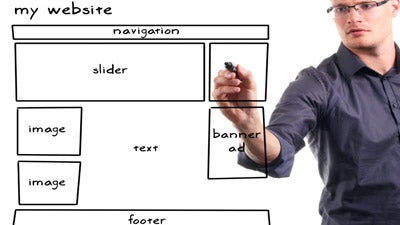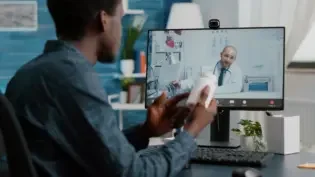
Every business in the modern era needs a website, but most business owners don’t understand the fundamentals of web design. They simply trust someone else to take care of everything on their behalf, or they convince themselves that web design is something that can be perfected with intuition alone.
Unfortunately, this leads to many unfortunate potential outcomes. Problematic initial direction can result in a website that simply looks unprofessional. And if you aren’t knowledgeable during your collaboration with your web design company, you might not get the most out of their expertise or their recommendations.
Thankfully, you can learn the fundamentals of web design in a relatively short period of time. This article won’t be comprehensive, but it will give you a decent start.
The Basics of Web Design
What is web design, exactly?
The difference between web development and design is that design focuses on creating the visual layout of the website, while development is all about constructing the code that makes that visual a functional reality. Web design is sort of like sketching out a blueprint, while development is building the house from that blueprint.
Before you can start building a website, you should have an idea for the design in mind. Web designers are often tasked with a variety of different priorities, including differentiating the website from others currently online, serving a target audience specifically, mastering the aesthetics, and of course, pleasing the client.
Key Principles of Effective Web Design
What makes a web design effective?
- Clear purpose. Designing a website from scratch with no clear direction will lead to a poorly designed website. Why? Because every website needs a defined purpose. Why does this website exist? What is it trying to achieve? If you don’t even know what you’re trying to achieve, there’s no way that design will be able to help you achieve it.
- Audience targeting. There isn’t a single web design that works well for all people and all purposes. That’s because different audiences have different preferences and needs. What seems exciting and fun to one audience niche might seem gaudy and unnecessary to another. You’ll need to understand your audience inside and out before you can determine whether a web design is going to be effective for them.
- Minimalism/simplicity. For the most part, websites are better when they’re simple. Sometimes it’s tempting to front-load a website with as much content as possible, bombarding your users with everything they could ever want. But websites tend to get more engagement and more conversions when they’re minimal and straightforward. Minimalistic and simple websites are much easier to understand and navigate, and they have cleaner aesthetics.
- Readability/comprehensibility. Good websites are also readable and comprehensible. Using a combination of better fonts and better colors, you can help the text on your page stand out. And using better background colors and clever positioning, you can draw user attention to the sections and pieces of content that matter most.
- Easy navigation. Unless your website is only one page, you’ll also need to master the art of navigation in your web design. Users should be able to figure out, at a glance, how to get to the section that is most relevant to them. They should also have no trouble backtracking and getting back to the home page after straying away from it.
- Speed and functionality. Speed and functionality are typically more of a web development problem than a web design problem, but designers still need to think about how their designs are going to function in a live environment. Certain interactive elements may look cool and provide an engaging experience, but they could bog your site down, ultimately making them ineffective as a tool for enhancing the power of your website.
- Mobile friendliness. You’ll also need to test your website to make sure it’s displaying as intended on a wide range of different devices. The majority of web users today are mobile users, so it’s especially important to make sure their experience is as streamlined and fluid as possible.
Room for Subjectivity
There are some black and white issues in the world of web design, but we also need to acknowledge that there’s plenty of room for subjectivity. A website that looks pretty in the eyes of one visitor may look ugly in the eyes of another. Don’t be afraid to let some of your personal preferences, or even better, the personal preferences of your target audience, guide you to bend the rules.
At this point, you should have a basic functional understanding of the most important principles of effective web design. There’s a lot more to learn, even if you’re not planning on becoming a web designer in your own right, but you can take things one step at a time from here.
1572 Views














